O.R.E. operates an annual guide school each spring for prospective guides. This guide school is focused on learning the basics of river dynamics, paddle raft guiding, and river safety taught over three separate weekends.
Upcoming class 2025:
* Third weekend is for guide-trainees as well as guides who, though they are experienced, are new to O.R.E.
Please submit a completed Application Form and submit a resume to info@oregonriver.com
O.R.E.’s Guide School provides a hands-on experience. Some companies run their guide school as a trip with education built into it. We operate our guide school as a guide training program with the majority of students working for O.R.E. post guide school.
Dryland and on-river instruction cover a comprehensive array of skills and topics. Our Instructors begin by explaining the basics and teach by example. The emphasis throughout is on learning by doing, so students will be actively involved in every learning experience, from cooking, to paddle captaining, to river rescue, to rowing a gear raft. The majority of the class is focused on learning how to operate paddle boats, learning to read whitewater, and basic river safety skills.
During your course, we’ll be rafting 3 of Oregon’s best day-trip rivers, the Clackamas, North Santiam, and Deschutes. Convenient access points, location, and water levels are the factors used to determine which rivers we will visit. As a result, we can choose our river and stretch of river per the needs of our students. We will start early in the morning and finish up around 5:30 PM each day.
Curriculum Points Include:
Trainees learn a lot in a short timeframe, but additional training is necessary after the formal instruction period has ended. For this reason, hired trainees enter an on-the-job training period after guide school is complete. Trainees/Assistant Guides should plan to spend at least another six days in training or more. Assistant Guides work alongside our experienced crew on our regular commercial trips. This on-the-job training is the best way to hone your skills. Assistant Guides are neither charged nor paid at full rate for the time they spend in training.
If you’re interested in becoming a guide and don’t have whitewater guiding experience, then the O.R.E. Guide School is a great option to get into the industry. Please complete the application and submit a river resume.
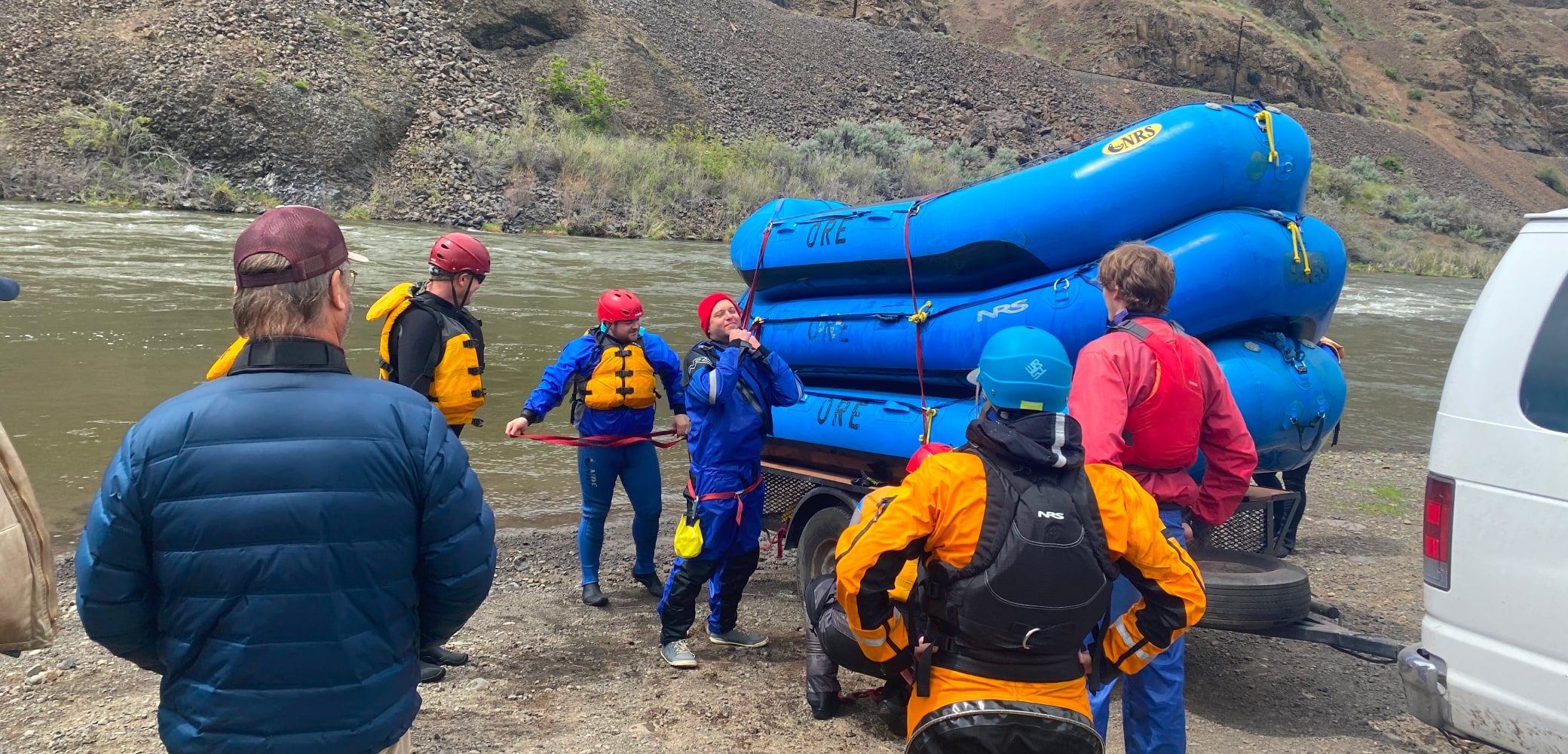
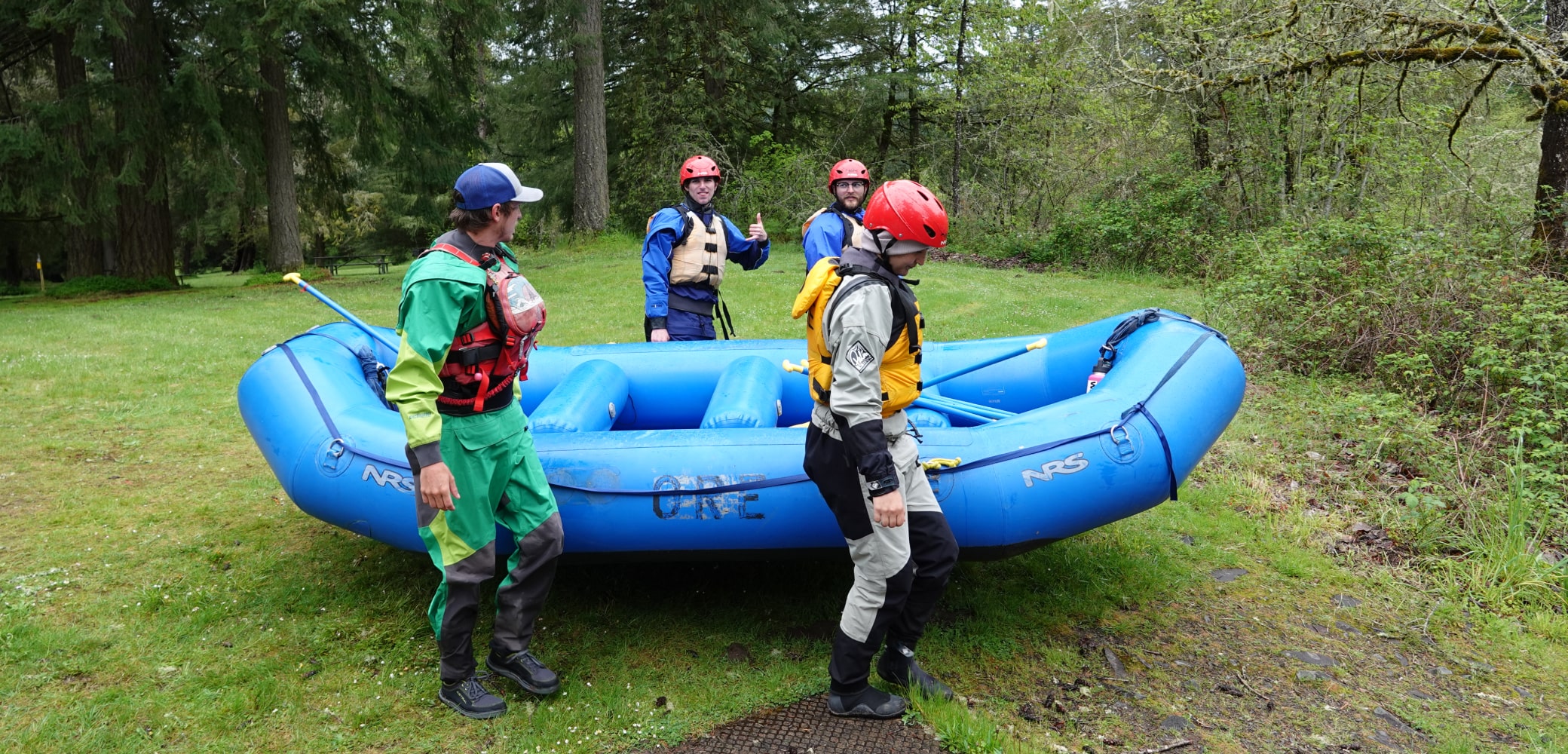
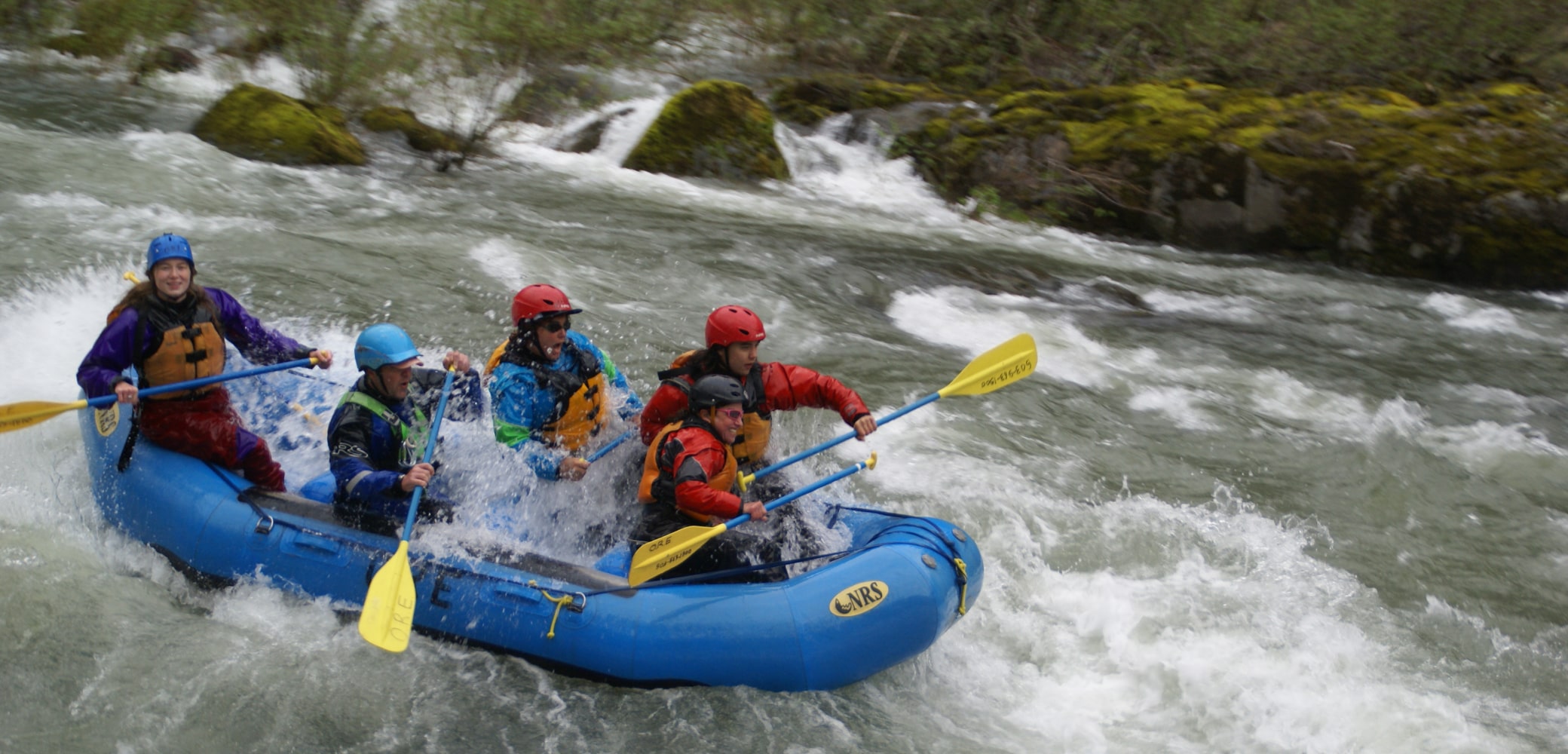
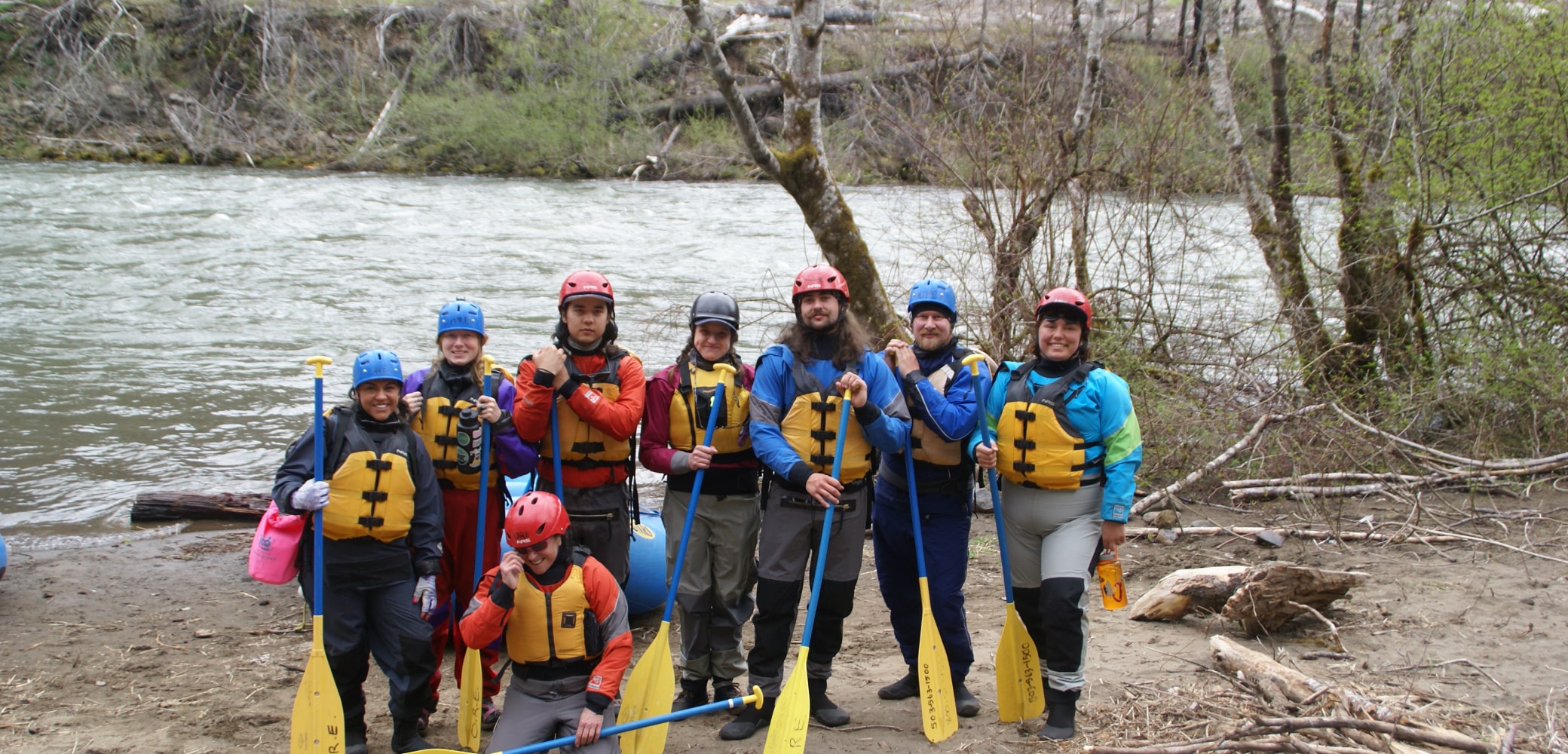
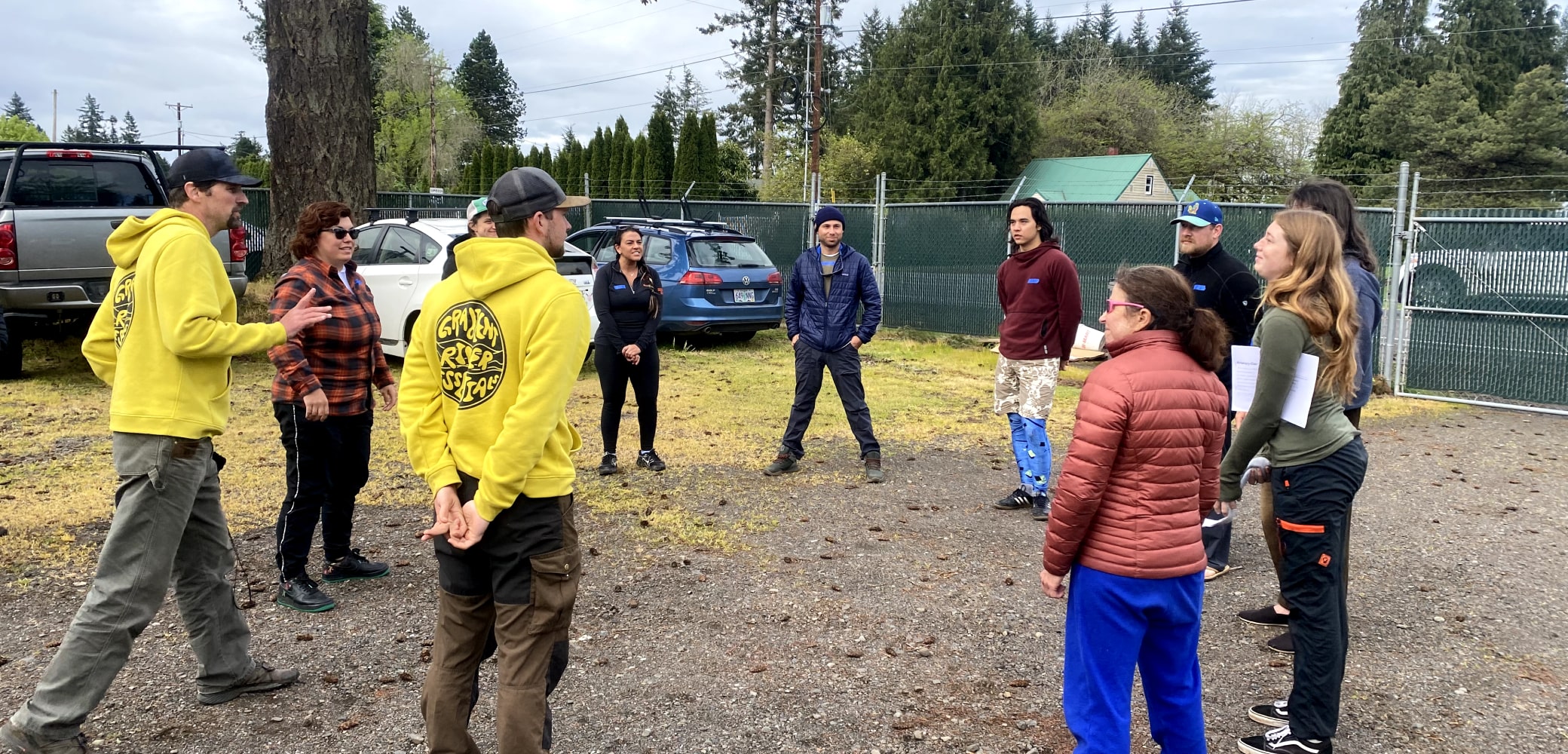
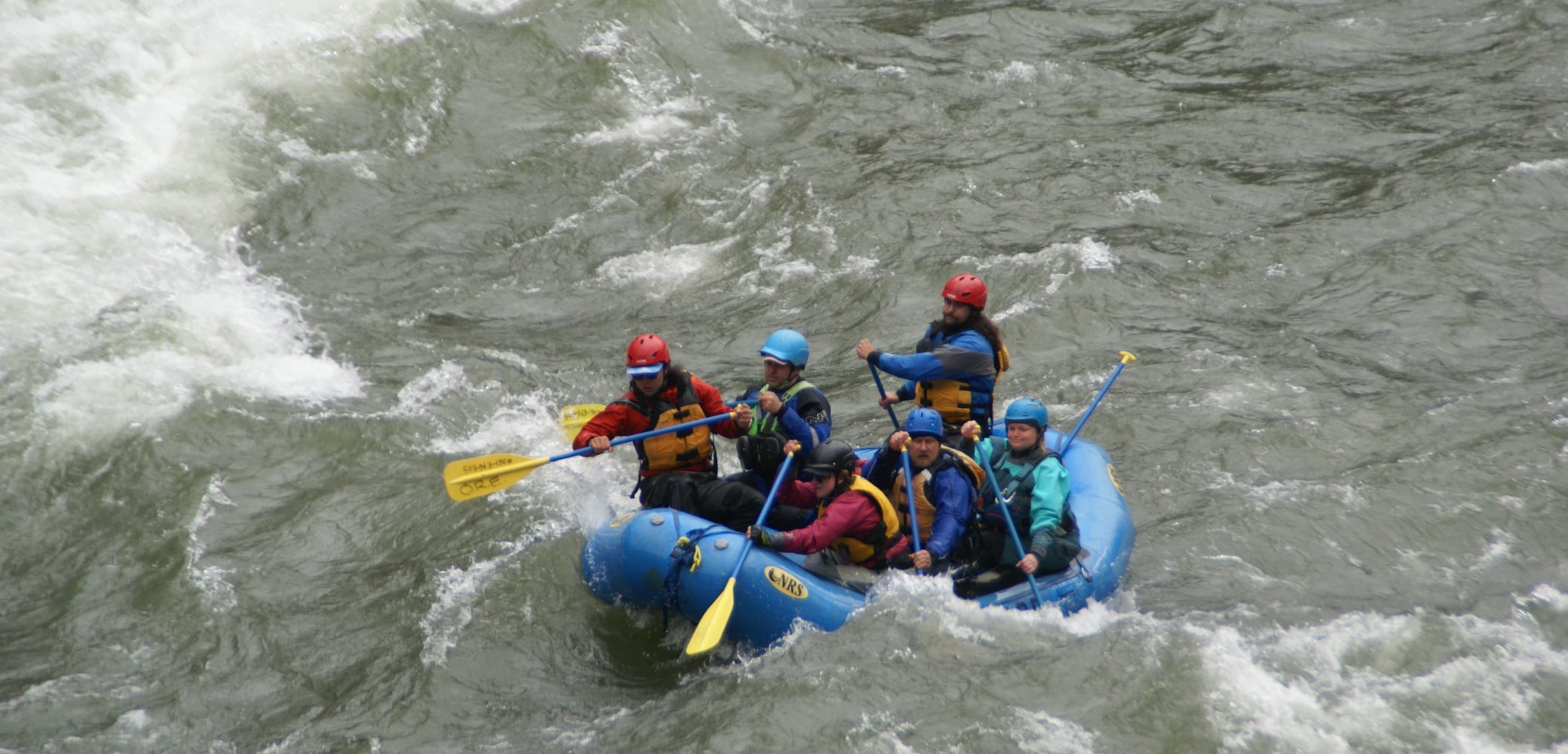
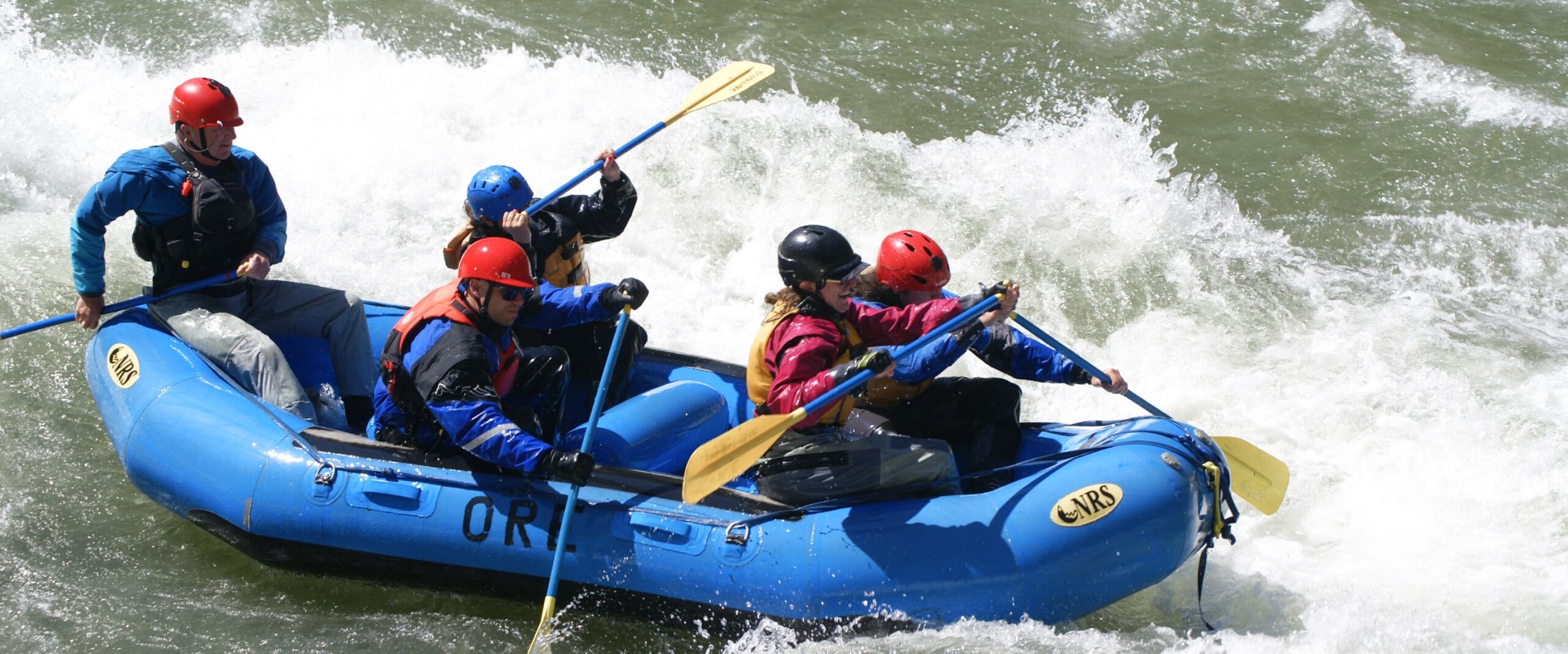
At O.R.E. we believe that an individual’s personality and social skills are the most important elements in the making of a truly superior river guide. While excellent river skills are indispensable, when we hire guides we look first for people who have a high degree of personal sensitivity and social perception. So if you have strong people skills, if you have a good work ethic, and if you’re on the way to developing competency on the river the answer is that your chances at O.R.E. may be good.
In most cases, an additional 6 days of training is required. However, beginners should generally expect to spend between 2 to 4 weeks in post-guide school training before graduating to a paid guide position. How long you spend as an assistant guide depends partly on your skills and also on whether you are training for day trips (a shorter training period in most cases) or multi-days (a longer training period). During this training period, assistant guides may still earn pay when driving shuttles, assisting in the shop, or (in some cases) rowing baggage boats on multi-day trips.